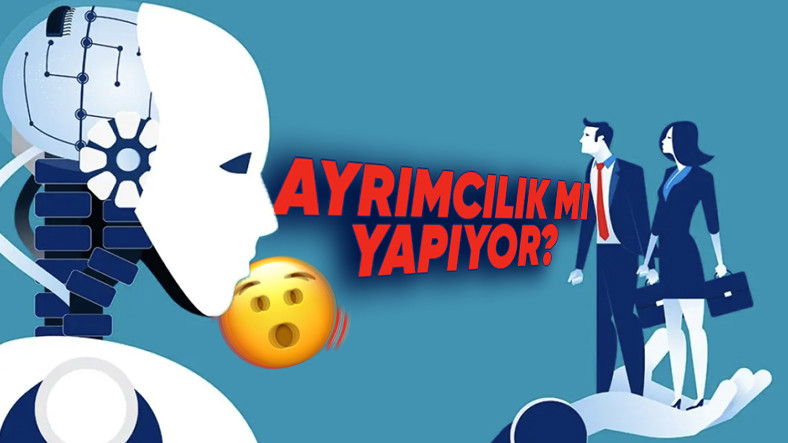Well, in today’s technology it is now used everywhere. ethical boundary of artificial intelligence Why is it so important?
from the well-being of society We talked in depth about the ethical boundaries we encounter on various issues, from the protection of individual rights to the protection of individual rights.
Data privacy and confidentiality

Artificial intelligence systems work with large amounts of data, and this data is often also available contains personal informationThis situation may lead to data confidentiality and privacy violations.
For example, analyzing users’ personal preferences by monitoring their behavior on a social media platform is being manipulated can cause. This situation, which we can also consider an algorithm, is not as innocent as you think, because sometimes we can be hit at our most sensitive point.
Prejudices and discrimination

Artificial intelligence algorithms can internalize biases in training data ethnicity, gender It can lead to discrimination based on personal characteristics such as.
For example, An artificial intelligence system used in recruitment processescan discriminate based on factors such as gender or race. To prevent such biases, it becomes important to diversify training data and develop algorithms that will reduce biases.
We can give an example of this from Amazon. Amazon has stopped using artificial intelligence in its recruitment processes. The algorithm is usually male candidates preferred because Amazon’s system was trained on data collected over a ten-year period from primarily male candidates.
Similarly, Google, IBM and Microsoft, including Amazon, use speech recognition systems. voices of black people He noticed that he made more mistakes when translating than white people.
Accountability and transparency

It is also an important ethical issue who is responsible for checking the decisions of artificial intelligence systems. Especially autonomous vehicles or medical diagnostic systems In critical areas, for example, wrong decisions can have serious consequences.
That’s why artificial intelligence systems to be transparent, Decision-making processes must be understandable and traceable. It is also essential to establish and continually review regulatory frameworks for the ethical use of these technologies.
Unemployment and economic consequences

The increasing use of artificial intelligence in business and the automation of some professions unemployment problem can also put it on the agenda. It can increase economic inequality and threaten social justice.
Employers, protecting the rights of employees and it becomes an ethical duty to support them in this transition process. At the same time, training programs on the ethical use of artificial intelligence technologies in the workplace should be organized.
Human-machine interaction and trust

The integration of artificial intelligence into human life raises the issue of trust. Special health care, justice and security In critical areas such as artificial intelligence must be reliable and safe. In this area, engineers, politicians and politicians are involved in the development of artificial intelligence systems. close cooperation between society must.
Ensuring that artificial intelligence is beneficial to humanity is possible by encouraging its ethical use.
As a result, determining the ethical boundaries of artificial intelligence is not just a technological problem, but a profound one. human issue Also. While maximizing the potential benefits of artificial intelligence, it is necessary to establish regulatory frameworks that will protect individual rights and social values.
Correctly defining ethical boundaries and staying within these boundaries is also important as a society. It is our shared responsibility.
Sources: Digital Age, Iienstitu, IEP, Research Gate, Comptia Connect, The Harvard Gazette
You can also explore other aspects of artificial intelligence by exploring this content:
Follow Webtekno on X and don’t miss the news


















